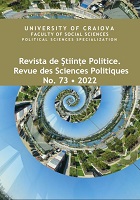From Moldovian Dialect to Romanian Literary Language – Similarities and Differences
From Moldovian Dialect to Romanian Literary Language – Similarities and Differences
Author(s): Ileana Mihaela Chirițescu, Floriana Anca PăunescuSubject(s): Language studies, Phonetics / Phonology, Lexis, Sociolinguistics
Published by: Editura Universitaria Craiova
Keywords: literary language; dialect; terminology; linguistic variations;
Summary/Abstract: The development of the Romanian language in various closed communities led to the emergence of regionalisms. These lexical units are sometimes incomprehensible by speakers from other regions of Romania. The Romanian language is a paradise for borrowing and has adapted to all situations and overcome them all. The Romanian language will always be winning. Because, in a dictionary article, in etymology, sometimes five origins are given, because we had translations from French, German, Greek texts. They all influenced and this is known from phonetics. It was the language that chose the ideal form. Usual chose a form and the Romanian language did not drown due to too many sources. But the Romanian language will win, because it is very important that today's students use the terms according to the European norm. Not around our isolated corner of the world. No language stands still, it is constantly enriched by borrowings of any kind from other languages and in turn gives to other languages. It is a continuous movement, and it is natural for that to happen. Here we can give the example of words that for a period of time are accepted in specialized dictionaries with two or even more forms, all being considered correct. The writer Nicolae Dabija said that the dialect spoken by the Bessarabians can easily enter in the Guinness Book - because the language spoken in Bessarabia has the most names in the world - the Moldavian language is called: state language, native language, language of the ancestors, language of instruction, Eminescuʼs language, Moldovan language, Vieruʼs language, only not to be called by name, and her name is one – Romanian language.
Journal: Revista de Științe Politice. Revue des Sciences Politiques
- Issue Year: 2022
- Issue No: 73
- Page Range: 222-228
- Page Count: 7
- Language: English

